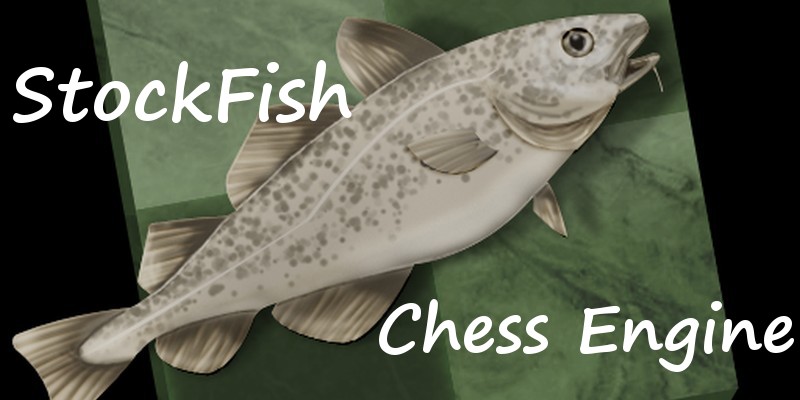

For a dual task of predicting whether a human will make a large mistake on the next move, we develop a deep neural network that significantly outperforms competitive baselines. We develop and introduce Maia, a customized version of Alpha-Zero trained on human chess games, that predicts human moves at a much higher accuracy than existing engines, and can achieve maximum accuracy when predicting decisions made by players at a specific skill level in a tuneable way. Stockfish dev-20230503 Ivec wins Banksia CEDR Tournament, (Test by Chess Engines Diary. Applying existing chess engines to this data, including an open-source implementation of AlphaZero, we find that they do not predict human moves well. The hundreds of millions of games played online by players at every skill level form a rich source of data in which these decisions, and their exact context, are recorded in minute detail.

#STOCKFISH CHESS .COM SOFTWARE#
The aggregate performance of a chess player unfolds as they make decisions over the course of a game. The part that couldnt fit in the title is this backend is used in places like and contributors to the software do not think this is a valid issue as they rely on the GUI to sanitize all inputs. We pursue this goal in a model system with a long history in artificial intelligence: chess. A crucial step in bridging this gap between human and artificial intelligence is modeling the granular actions that constitute human behavior, rather than simply matching aggregate human performance. There are a lot of different engines such as Stockfish, Houdini, Rybka. However, the ways in which AI systems approach problems are often different from the ways people do, and thus may be uninterpretable and hard to learn from. Fast and strong chess coach bot will help you to play on,. The code for training Maia can be found on our Github Repo.Īs artificial intelligence becomes increasingly intelligent-in some cases, achieving superhuman performance-there is growing potential for humans to learn from and collaborate with algorithms. If you want to see some more examples of Maia's predictions we have a tool here to see where the different models disagree.

If you want to be the first to know, you can sign up for our email list here. We are going to be releasing beta versions of learning tools, teaching aids, and experiments based on Maia (analyses of your games, personalized puzzles, Turing tests, etc.). You can read a blog post about Maia from the Computational Social Science Lab or Microsoft Research.
#STOCKFISH CHESS .COM FULL#
Read the full research paper on Maia, which was published in the 2020 ACM SIGKDD International Conference on Knowledge Discovery and Data Mining (KDD 2020).


 0 kommentar(er)
0 kommentar(er)
